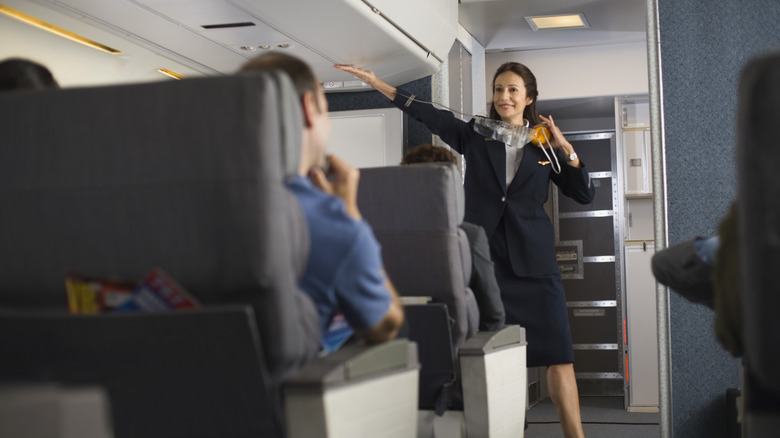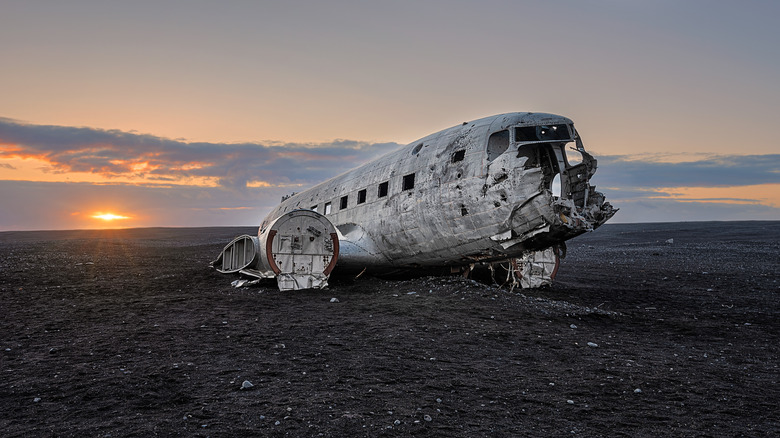The Immediate Crucial Steps To Take If You Survive A Plane Crash, According To A Captain
Although flying is one of the safest ways to travel, the idea of a plane crash is enough to scare even the most confident flyers. With plane incidents making headlines more frequently — despite aviation accidents trending downward over the last 20 years — it may have you wondering what you should do afterward if you survive a plane crash. Explore spoke to retired Captain Richard J. Levy, a veteran pilot with nearly 41 years of international flying experience and now a Flight Crew Training Instructor and aviation consultant. In an exclusive interview, he shared some crucial steps to follow after an incident.
First, know your rights. Airline passengers can file complaints and sue the airline following a crash. "Should the passenger desire to take legal action in search of a remedy, they should definitely look for the correct attorney that would fully represent them," Levy says. "That could be an aviation attorney or a personal injury attorney." He adds that the right lawyer will often bring in aviation experts to help build a strong case. While it might be tempting to share your story publicly, Levy warns against it. "Do not make public statements, verbally or in writing. This includes social media," he says. "Should the attorney(s) representing the airline involved see these statements, they could be used against the airline passenger, which could in turn weaken the passenger's case."
Passengers should understand the legal process can be long and complex. "From the hiring of the attorney to the preparation of the complaint, to assembly of discovery, to taking of depositions, and then going to trial should mediation not work, the case could last a year or more," Levy explains. He also recommends passengers plan ahead for the worst-case scenario by buying life insurance.
Essential survival tips for after a plane crash
If your plane crashes, the first few minutes could mean the difference between life and death. While the odds of being in a major plane accident are slim, survival experts say it's important to think clearly in those early moments. You may not be informed if your plane is about to crash, so try to act without panicking. If flight crew are there to guide you, follow their instructions. They're trained for these scenarios. If the plane is filling with smoke or on fire, evacuate quickly. A good distance is at least 500 feet away from the wreckage — far enough to avoid danger, but close enough for rescuers to spot you. In the case of an emergency water landing, don't inflate your life vest until you're out of the plane, otherwise it could trap you inside or be damaged upon exit.
Next, assess your injuries and whether you or others need immediate help. Medical attention should come first, even if the shock and adrenaline make the pain less noticeable. If you're uninjured and the crash site looks safe, it's usually better to stay near the wreckage, especially if it was a commercial flight. Search and rescue teams will look for the crash site, so it's your best bet for the earliest help. However, if your plane crashed far off course, you know you can get help nearby, or someone's injury needs immediate attention, it may be better for someone to go for help if they are healthy enough.
Be sure to conserve your energy and supplies, and work together with other survivors while waiting for help. Find the locator beacon on board if possible, and use anything to stay visible and signal for help — shiny objects, bright colors, and flares or fire.

